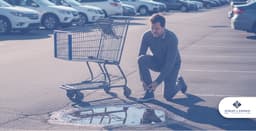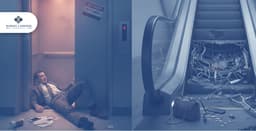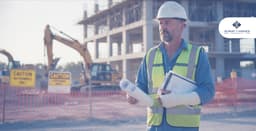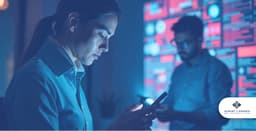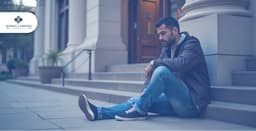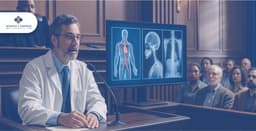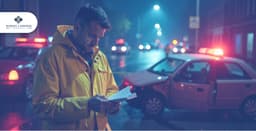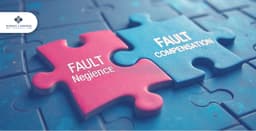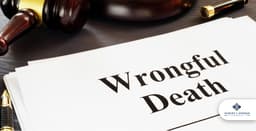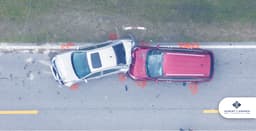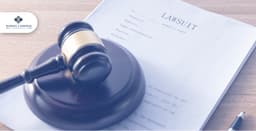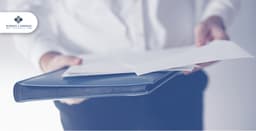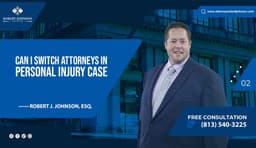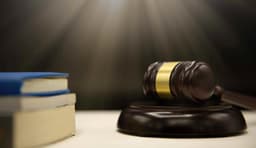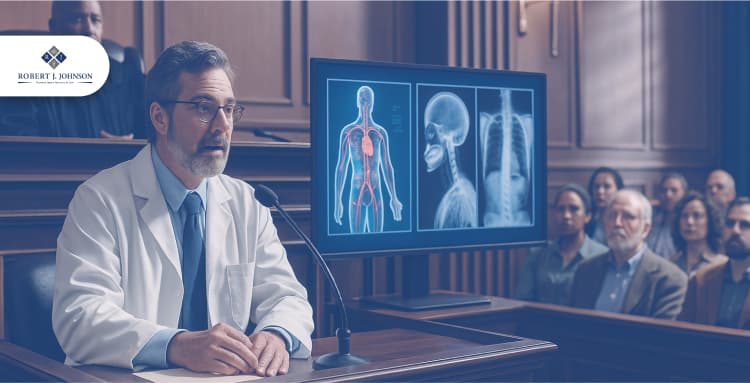
June 18, 2025
In What Case Would You Need an Expert Witness?
In a courtroom, complex facts often decide the outcome. When technical issues arise that a judge or jury cannot easily understand, an expert witness steps in to provide clear, professional insight.
Even in everyday cases, specialized knowledge can be necessary. In fact, 86% of trials involving medical malpractice use expert witnesses, showing how often their expertise shapes a case.
So let’s talk about it —
When do you need an expert witness? What kinds of cases depend on them? And how much weight do their words really carry when it’s time for a verdict?
1) Health on Trial: Medical Malpractice and Expert Witnesses
When a patient is harmed by those entrusted with their care, the legal process should bring answers, not more uncertainty. Medical malpractice cases often turn on complex clinical decisions, and without expert insight, those details can remain unclear.
Consider a case where a surgeon is accused of operating on the wrong site. Determining what went wrong—and whether the standard of care was breached—requires more than lay understanding. A qualified medical expert can explain accepted procedures, identify errors, and clarify how those errors caused harm.
Plaintiffs win just 21% of malpractice trials without expert support. However, that success rate climbs to 57% when expert testimony is strong
(Source: Clinical Orthopaedics and Related Research).
2) After the Impact: Personal Injury and Accident Reconstruction
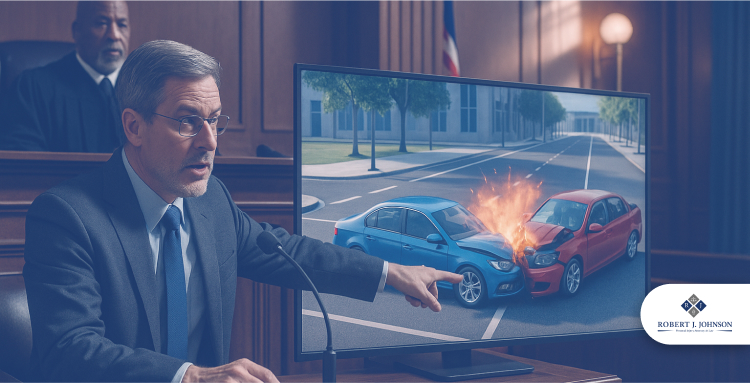
After a life-altering accident, legal claims often come down to more than just visible injuries. Establishing fault, explaining how the incident occurred, and proving the lasting effects require precision, and that’s where expert witnesses become indispensable.
In motor vehicle collisions, for instance, an accident reconstruction expert can assess factors like speed, angles of impact, and braking patterns to present a clear, fact-based narrative of how the crash happened. In premises liability cases, such as slip-and-fall injuries, safety engineers or building code specialists might testify about hazardous conditions that contributed to the fall.
Medical experts may also be called in to discuss the long-term consequences of injuries, from chronic pain to permanent disability. Their testimony helps bridge the gap between the lived experience of the injured person and the legal standards needed to prove damages.
Expert testimony improves success rates by 45% in personal injury cases.
Source: American Bar Association
3) Foundations That Fail: Construction Disputes and Structural Experts
When a home begins to crack or a building shows signs of collapse, the root cause isn’t always visible, nor is it simple. Construction disputes often involve layers of technical issues that only trained professionals can uncover and explain in a way that holds up in court.
In disputes over unstable foundations, improper drainage, water intrusion, or major structural failures, expert witnesses provide essential insight. Engineers may investigate the integrity of load-bearing elements, while architects evaluate design flaws or overlooked safety considerations. Construction experts review blueprints, project timelines, and material specifications to determine whether any step of the build deviated from industry expectations or regulatory standards.
Expert evidence can account for between 30% and 60% of the total cost in construction arbitration cases, underscoring its significance in resolving disputes.
Source: Global Arbitration Review
Their reports and testimony help establish liability by linking damage to specific oversights, code violations, or substandard workmanship. This level of detail is often necessary to move a case forward.
4) Dollars and Decisions: Financial Litigation Needs More Than a Calculator
For families protecting their assets or businesses fighting to survive, financial disputes often carry high stakes. When errors or misconduct are buried in spreadsheets and ledgers, it takes more than basic math to uncover the truth.
In cases involving disputed business valuations, hidden income, or allegations of fraud, expert witnesses bring essential clarity. Forensic accountants, financial analysts, and economists can trace transactions, interpret records, and explain the financial impact in a way the court can rely on.
More than 70% of complex financial cases involve expert witnesses.
Source: Journal of Forensic and Investigative Accounting
5) Protecting Ideas: Intellectual Property and Technical Expertise
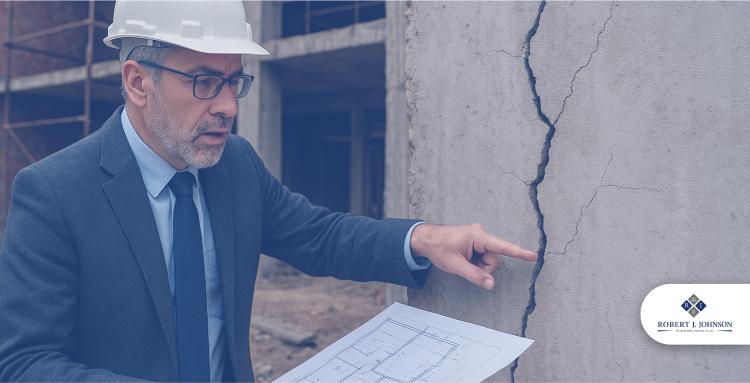
Behind every invention, brand, or creative work is the time, talent, and vision of someone who built something unique. When those ideas are challenged or stolen, defending them often requires technical precision that goes beyond ordinary testimony.
In patent infringement cases, for instance, engineering or technology experts are frequently needed to explain complex designs, systems, or processes. Their testimony helps the court determine whether a protected invention was used improperly or if a product truly violates intellectual property rights.
Nearly 80% of patent litigation trials feature at least one technical expert.
Source: Stanford Law Review
6) Justice Beyond Doubt: Forensic Experts in Criminal Cases
In a criminal courtroom, a single scientific detail can alter the course of a life. Evidence that might seem invisible to most, such as a trace of DNA, a bullet’s trajectory, or a psychological evaluation, can carry enormous weight in deciding guilt or innocence.
Forensic experts step into this high-stakes setting to offer the technical clarity that cases demand. A DNA analyst may show that biological evidence links a suspect to a scene, or proves they were never there.
A ballistics expert can trace the path of a bullet to reconstruct the exact sequence of events. Forensic psychologists might testify about a defendant’s mental state, shedding light on intent, capacity, or trauma. Their work is not a luxury in the courtroom—it is often essential for uncovering the full truth.
Forensic expert testimony is present in 82% of criminal trials that go to a jury.
Source: Bureau of Justice Statistics
This helps ensure that verdicts rest on evidence rather than guesswork, giving both defendants and victims the fairness the system promises.
7) Families in Transition: Expert Witnesses in Divorce and Custody Cases
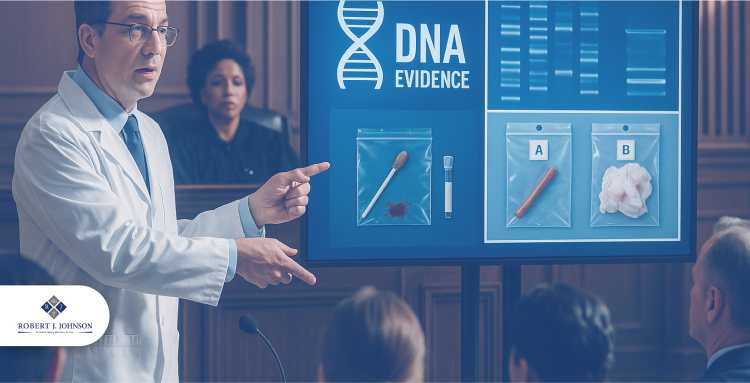
When a family moves through divorce or custody proceedings, the legal system is tasked with more than just dividing assets or assigning schedules—it must weigh what’s fair, sustainable, and in the best interest of everyone involved. Expert witnesses often bring clarity to situations that are emotionally charged and legally complex.
In high-conflict custody cases, courts rely on psychological experts 60% of the time.
Source: American Psychological Association
In custody disputes, child psychologists help the court understand the emotional needs and developmental stages of the children at the center of the case. Their evaluations may explore each parent’s relationship with the child, the stability of home environments, and signs of distress or adjustment issues that aren't always obvious. Their input becomes a guidepost for decisions that shape a child’s daily life.
In high-asset divorces, financial experts are just as vital. They analyze business interests, uncover hidden assets, assess future earning potential, and provide valuations that help ensure equitable division. Without their precision, property settlements risk being inaccurate or unjust.
How Robert J. Johnson Supports Your Case with Powerful Expert Witness Testimony
We understand that in complex legal cases, expert witness testimony can make the difference between uncertainty and a clear, compelling argument. Whether you're involved in a personal injury claim, medical malpractice case, business dispute, or child custody matter, expert insights often bring the clarity courts need to reach fair decisions.
We work with respected medical experts, forensic specialists, financial analysts, engineers, and psychologists—each chosen based on the specific needs of your case. These professionals explain technical details in straightforward terms, helping judges and juries fully grasp the facts.
If you're facing a legal dispute that calls for expert support, contact us today to find out how we can help protect your rights and pursue the outcome you deserve.


